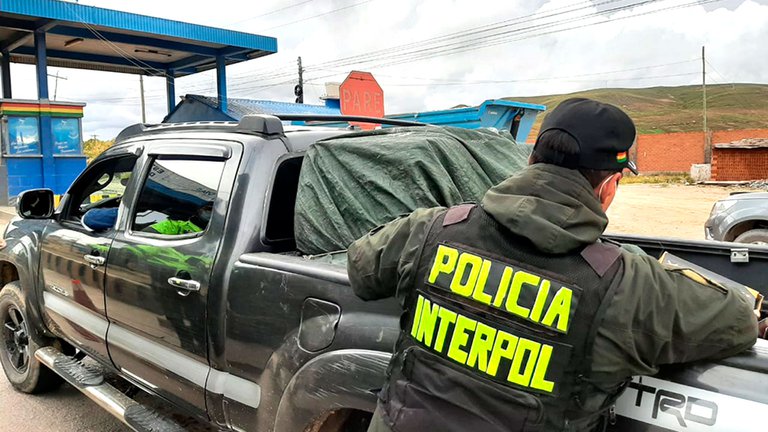RIO DE JANEIRO, BRAZIL – Interpol dealt a “major blow” to arms trafficking in Latin America in an operation that led to the seizure of more than 200,000 firearms, explosives, and other components in 13 countries in the region, 4,000 arrests, and the dismantling of drug manufacturing laboratories.

Dubbed “Trigger VI”, the international police organization’s operation also opened new lines of investigation into other crimes that will be developed in the coming months, said Ricardo Villegas Pávez, one of the coordinators of the operation, to the EFE news agency.
“It is one of the most important operations because we are in a context of pandemic (…) In that sense, I think it is a unique operation,” he said.
Launched in September 2019, when the investigation and intelligence phase began in Brazil, the operation lasted three weeks between last March 8 and 28, in coordination with the police of the thirteen countries involved and the United Nations Office on Drugs and Crime (UNODC), in addition to Interpol itself.
The arrests and seizures took place in Argentina, Bolivia, Brazil, Chile, Colombia, Ecuador, French Guiana, Guyana, Paraguay, Peru, Suriname, Uruguay, and Venezuela.
For Villegas, “Trigger VI” once again highlights the importance of cooperation between countries to tackle an international crime that “does not respect borders, has production, transit, and distribution zones” that do not follow “traditional approaches based on national sovereignty”.
“The only thing that is effective against this global threat is a global response from the countries concerned. In that, Interpol plays a fundamental role, generating channels of coordination to confront organized crime. No single country, no matter how powerful, is going to be able to fight organized crime,” he said.
IMPORTANT ACHIEVEMENTS
Among the achievements of the operation was the arrest of gang members in Uruguay who used social networks to promote violence and the seizure in Peru of large quantities of ammunition from the triple border between Brazil-Argentina and Paraguay, with the arrest of two fugitives of U.S. origin wanted for drug trafficking.
Also, unexploded grenades were seized in Lima in an intervention that led to a shootout, while up to 90,000 pieces of ammunition have been seized in the countries as a whole.
A Colombian national wanted for drug and arms trafficking was arrested in Chile.
Interpol Secretary General Jürgen Stock stressed the importance of Latin America’s operation, “where firearms represent a grave threat to security and stability” in the region.
Villegas recalled that firearms are responsible for half of the homicides committed globally, but in the Americas, with 13% of the population is the scene of 37% of murders, the percentage rises to 65%.
He added that the restrictions imposed by COVID-19 had not reduced arms trafficking since organized crime “adapts to the situation”, which forces police systems to evaluate how these phenomena mutate and to adapt their response to the situation.
CATALYZING FACTOR
Villegas considered that “by attacking arms trafficking in a transversal manner, an important link in the chain of crimes is removed”, since they are “a catalyzing factor” for many of them.
In this sense, “Trigger VI” brought to light links between arms trafficking and fraud in the 27 Brazilian states and led to the arrest of an alleged leader of a major smuggling and counterfeiting network.
In Bolivia, 27 cocaine laboratories were destroyed. One of which, located in the Gran Chaco region reserve near the Paraguayan border, included a camouflaged runway for small planes and sophisticated telecommunications systems.
The operation also resulted in the rescue of 33 victims of human trafficking, apparently of Haitian origin, at the La Paz bus terminal and the seizure of some 40 tons of cocaine, marijuana, and precursor chemicals.
Source: infobae

